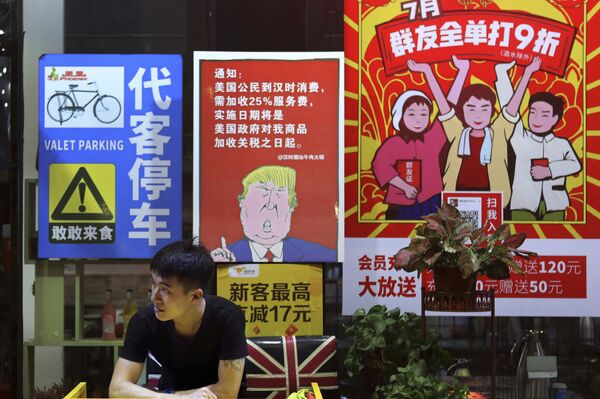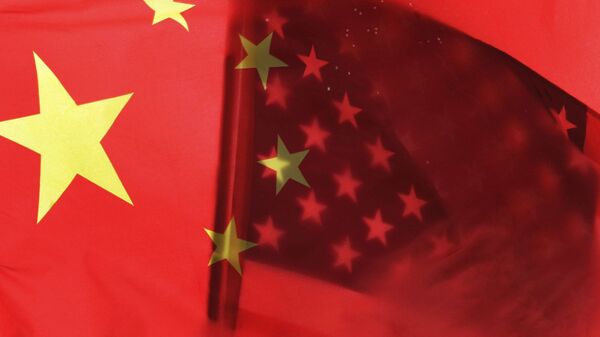The White House has issued a scathing strategy report to Congress about China, filled with an assortment of Cold War-style allegations and epithets, accusing the People’s Republic of “predatory economic practices”, an array of human rights violations and abuses, a “threatening” military buildup, powerful disinformation, propaganda and hacking campaigns, and more.
Recalling the recent history of US-China relations and the establishment of diplomatic relations between the two countries in the late 1970s, the document suggests that in the “more than 40 years” since then, “it has become evident that this approach underestimated the will of the Chinese Communist Party to constrain the scope of economic and political reform in China.”
“Over the past two decades, reforms have slowed, stalled or reversed. The PRC’s rapid economic development and increased engagement with the world did not lead to convergence with the citizen-centric, free and open order as the United States had hoped. The CCP has chosen instead to exploit the free and open rules-based order to attempt to reshape the international system in its favour,” the report says.
‘Threat to American Way of Life’
China’s political, economic and military activities at home and abroad are a threat to “vital American interests,” the report suggests, adding that unlike its predecessors, the Trump administration is prepared to tolerate “greater bilateral frictions” in relations between the two countries in the interest of protecting “the American people, homeland, and way of life,” promoting “American prosperity”, preserving “peace through strength” and advancing “American influence” abroad.
The document accuses China of an array of crimes, including technology theft, mercantilist economic practices, attempts to reshape the world economy in China’s favour with its One Belt One Road initiative, and other mischief. At the same time, the report accuses China of challenging “American values”, suggesting that Beijing is in “an ideological competition with the West” to demonstrate the superiority of socialism with Chinese characteristics over capitalism.
The document also accuses China of intervening “in sovereign nations’ internal affairs to engineer consent for its policies”, citing alleged recent attempts to influence discourse and behaviour among companies, sports teams and politicians in the West, without citing specific examples.

On the media front, the document claims China has access to “the world’s most heavily resourced set of propaganda tools,” including TV and print, radio and online resources, as well as ‘influence operations’ allegedly targeting “businesses, universities, think tanks, scholars, journalists, and local, state and Federal officials in the United States and around the world”. Again, no specific examples are given.
Ultimately, the document suggests that US needs to “rethink the policies of the past two decades” toward China, and act to protect “our interests appropriately”. This includes increasing resources to US security agencies to counter “malign foreign investment” and the theft of trade secrets, tightening controls on Chinese officials meeting with their US counterparts or academics, screening out Chinese students seeking “to enter the United States under false pretences or with malign intent”, tackling Chinese counterfeit goods, rethinking the US-China trade relationship, and building up the US military and nuclear arsenal, including in the areas of hyper-sonic weapons, and increasing freedom of navigation in the South China Sea, as well as continuing to assist Taiwan politically and with arms sales.
Chinese officials have yet to comment on the report, its contents, or the allegations made within.
The report’s release comes in the wake of a series of tough comments by President Trump against China in recent weeks, including musings about breaking off diplomatic relations, and warnings about some sort of “retaliation” to punish Beijing over its alleged inaction to contain the COVID-19 virus before it turned into a global pandemic.
Trump and other US officials and lawmakers have recently threatened to sanction, sue or tariff China over the coronavirus, and have even considered demanding a write-off for part of the US’s multi-trillion-dollar debt to the Asian nation.
China has warned that it would respond appropriately to any hostile measures, and has urged Washington to stop using “scapegoating practices”, to focus instead on “international efforts in coping with and combating the pandemic”. Chinese officials have also accused Washington of blaming China to cover up for the US government’s own failures in handling the pandemic.





